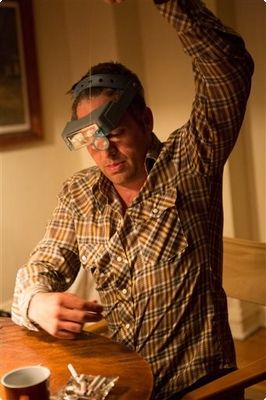For most of my life, the prevailing presumption underlying my existence is that I was on a mission to be understood. More even than to be loved (though I of course see them as related), certainly more than to be happy. Simply to be really fathomed, to have someone be able to see into my thoughts and feelings and take up residence. If not comfortably, per se, at least with the notion that this is comprehensible.
I would argue that this is a more universal desire than might be readily agreed to. I have argued, at times, that this is all anyone wants out of life, or what most people most want. I’m not convinced this is the case anymore, in part from growth in (note the irony here) understanding others, and starting to grasp the depth of human diversity and perspective. There really are people, whether it’s deeply authentic or largely shaped by societal structures, who just want to be happy. Or, more often, comfortable. And being understood isn’t always comfortable. Sometimes it’s a deeply unsettling experience.
Such an unsettling experience, that was simultaneously disturbing and movingly comforting, was had by me last night. It took place, like so many moving and disturbing experiences, in a movie theater. It was the experience of watching the new film Infinitely Polar Bear.
Folks, if you have even a passing interest in understanding me, if you want to know what it’s like to be the crazy person you know or read as Storey Clayton, this is your chance. Get yourself to a theater.
It’s not perfect. It’s not exactly spot-on in every place. I leaned over to Alex about four times during the screening and said “I’m not this bad, right?” It’s fueled by substances, both alcohol and tobacco and also lithium, none of which I’ve ever partaken in, nor ever plan to. And that makes a huge difference, in the severity and breadth of manifestations of manic depression. The see-sawing nature of addiction and chemical reliance certainly put a more dramatic and tenuous spin on the experience of emotional sine-curves. But good God, by and large, it was like watching a documentary of my emotional reality. Made doubly more mind-blowing by the fact that Mark Ruffalo, an actor whose range and depth I’ve always found disappointing, was bringing it to life so perfectly.
I was also probably more flabbergasted than normal by the fact that this viewing was one of the few in my life where I had the ideal movie-watching experience. I’d seen no previews, read no synopses or reviews, had no Earthly idea of anything about the movie other than its title when the movie began. All I knew is that someone I trusted to know me, at least a bit, had vouched that I would like the movie. So to have the movie really seem to get me, to understand my life and perspective, while I was viewing it this way, was incredibly special. One of the best experiences like this I ever had was seeing Memento in Boston at that vaguely independent theater that always seemed to spell doom for relationships. The immersion that can be achieved by having no idea what experience is coming brings movies the closest to simulating real life that they can. Something about that unpredictability that underlies our existence.
This issue of understanding, by the way, is what has made romantic betrayal such a particularly consternating aspect of my life. There is something about the people who came the closest to understanding, who professed understanding almost endlessly, being those who suddenly shun and disregard, that creates the ultimate devastation. There is this sinking feeling, actually attested to by my ex-wife, that the more one understands, the more inevitable betrayal becomes. That getting that close to the reality, to actually knowing what’s going on, creates repulsion, fear, the need to separate oneself. It is the increasing conviction that being truly understood will create this betrayal that has led me, for the first time in my life, to consider that being understood might not be the goal after all. That maybe we’re here to help each other get by without understanding.
True fact: I have received one (1) new e-mail during the time I’ve been writing this post. It is an invitation to the latest Bring Your Own Story event, wherein the theme of storytelling will be “To Good to Be True”.
I, literally, can’t make this stuff up.
Maybe I should just go hang out with the screenplay writer of Infinitely Polar Bear. Or even Mark Ruffalo, who seemed to capture something that so easily could have been a caricature as a real experienced life. Frankly, most people will probably see it as a caricature. And some of the extremes are things that I may not have actually done, though I’ve probably been close to everything depicted, outside of those scenes involving substances. Which I guess brings us to the only conclusion I can be sure of from all this today: Thank God I never started drinking. Thank you grandparents, thank you Gin Blossoms songs, thank you Sarah Brook and Fish for stopping me when I got off the plane from Liberia. I am convinced today that alcohol alone is the difference between me managing life as a high-functioning manic depressive who can “pass” as “normal” (though of course this blog lives in public largely because I don’t believe in passing) and being worse off than the polar bear stumbling through life on a screen near you.



